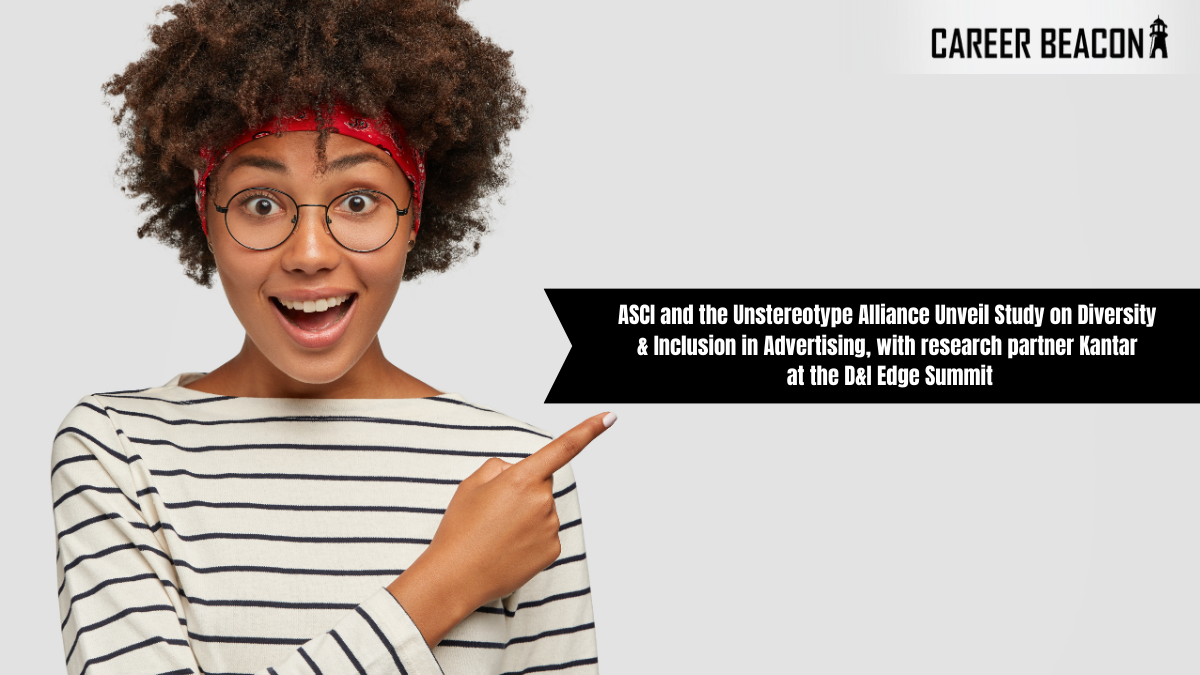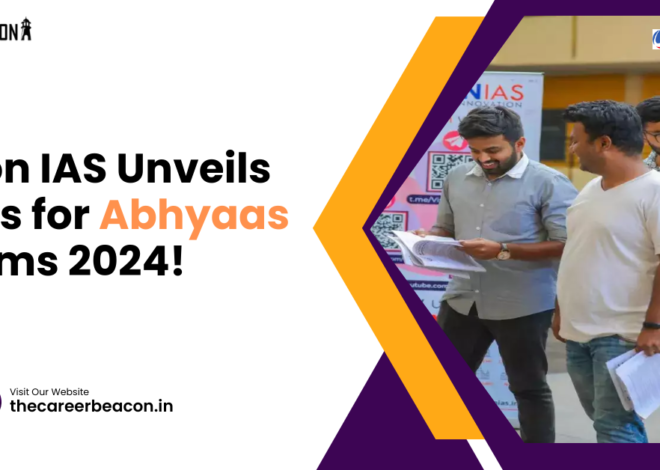
ASCI and the Unstereotype Alliance Unveil Study on Diversity & Inclusion in Advertising, with research partner Kantar at the D&I Edge Summit
- 48 percent of Indians expressed the need for more inclusive representation by brands as compared to 33% of consumers across the world
- Depiction of women continues to be skewed stereotypically (skin tone, appearance, and age), as compared to male characters
- Other groups including LGBTQI, Neurodivergent, differently abled, senior citizens nearly absent from Indian ads
- Diverse and progressive advertising commands higher ROI for brands.
The global dimension
Compared to 33 percent of consumers across the world, 48 percent of Indians expressed the need for more inclusive representation by brands. India’s socially aware consumers are an encouragement for brands on the way to inclusiveness and a wake-up call for those yet to embrace D&I.
The research scoured through all the new ads that aired in October 2023. Coupled with Kantar’s extensive analysis of advertisements over the past few years, the study provides a snapshot of the patterns, progress, and scope for improvement in DEI in India.
Key findings of the Indian study: There was a near absence of representation diversity in Indian advertising. The study found a dismal less-than-1 % representation of the LGBTQ+ community, people with disabilities featured in less than 1% of the ads and only 4% of Indian ads depicted people aged above 65 years. Women representation: While the presence of women in ads was comparable to men, sticky stereotypes still prevail. More women are portrayed with fair skin tone (58% of women vs 25% of men on-screen), with less diverse physical appearance (39% of women were shown as slender vs 16% men on-screen) and low non-traditional roles (17.5% of women were depicted as the sole caregiver vs 3.5% men characters) and less authoritative (with male characters three times more authoritative than their female counterparts). Women tended to be shown as younger with 86% of them between 20 and 39 years of age compared to 62% of men.
ROI boost
The study’s Unstereotype Metric or UM, designed by the Unstereotype Alliance with Kantar, regularly tracks advertising to understand the impact on ROI for brands with more progressive advertising. Positive female and male UM unlocked higher marketing ROI, the study found, both in terms of short-term gains in sales and long-term benefit of brand equity. There was an average percentile difference of over 54 (more positive female UM) and 59 (more positive male UM) in brand equity and an average percentile difference of over 32 (more positive female UM) and 38 (more positive male UM) in short term sales likelihood between ads in the top quartile and bottom quartile on the Unstereotype Metric in ads tested by Kantar in 2022.
The DEI Edge Summit
Inclusive casting, greater diversity with organisations, and aligning with the D&I purpose are just some of the areas advertisers can explore to embark on a successful D&I journey. The summit brought together several expert voices to explore the barriers to D&I adoption and possible ways ahead, showcasing different brand case studies, and providing insights for brands wishing to embark on this journey. Leading experts from the Industry, D&I champions, and media and films shared their views and journeys in this space. Manisha Kapoor, CEO and Secretary-General, ASCI, said, “There is no doubt that advertising shapes society. Indian advertising is missing the Diverse and inclusive narratives that can provide a real edge to brands, as can be seen in the study. Along with The Unstereotype Alliance and other partners, ASCI would like to nudge and support the advertising industry in getting its DEI representation right. The opportunity to include diverse perspectives and stories is a powerful one, and the event showcases the immense benefits both brands and society can derive from such progressive inclusions.” Brands which have internalised DEI agree. Ruchira Jaitly, Chief Marketing Officer, Diageo India, said, “As marketers, we have a crucial role to play in championing inclusion and diversity and in telling stories that elevate diverse and progressive voices through brand campaigns where everyone is represented, from script to screen, and which resonate with our consumers. We started our journey on progressive portrayal seven years ago and are proud of our progress. Diversity, Equity, and Inclusion is a critical component of Diageo’s Society 2030 ambition and progressive marketing is a core part of this ambition.” Susan, Fergusan, Country Representative, UN Women, said, “We, as the conveners of the Unstereotype Alliance India National Chapter, are pleased to host the DEI EDGE SUMMIT in collaboration with the ASCI Academy. Over the past two years, the Unstereotype Alliance in India has united brands, organizations, and individuals who believe in the transformative influence of advertising and media in fostering an inclusive society. Our efforts transcend campaigns; we strive to dismantle stereotypes, fostering a cultural shift that champions diversity and inclusion in advertising industry”.
About this report
The objective of the 28 DEI Country Factbooks is to provide companies with a basic understanding of the diversity landscape and the key equity and inclusion issues in each of the 28 markets* covered in the Global MONITOR survey. Primary data sources: Most quantitative findings are based on the 2023 Global MONITOR survey. The survey is collected among 36,000+ consumers, age 13+, in 28 markets* around the world. *Markets included: Argentina, Australia, Brazil, Canada, China, Colombia, Egypt, France, Germany, India, Indonesia, Italy, Japan, Malaysia, Mexico, Nigeria, Philippines, Poland, South Africa, South Korea, Spain, Sweden, Taiwan, Thailand, Turkey, United Kingdom, United States and Vietnam.
Other key sources cited
- World Factbook
- Social Progress Index
- WEF Gender Gap Index
- World Bank Gallup Poll
- Ipsos Poll
Terminology: Throughout the report, the term LGBTQ+ is used to refer to the Lesbian, Gay, Bisexual, Transgender and Queer community. The term LGB is used when referring to survey respondents who identify as Lesbian, Gay or Bisexual.
About Unstereotype Alliance
The Unstereotype Alliance is a thought and action platform working to remove harmful stereotypes in media and advertising content. Convened by UN Women — the United Nations entity for Gender Equality — the Unstereotype Alliance brings together partners and seeks to use the advertising industry as a force for good to drive positive change all over the world. The Alliance contributes to empowering people in all their diversity (race, class, age, ability, ethnicity, religion, sexuality, language, education, etc.) to help create an equitable world.
About the Advertising Standards Council of India (ASCI)
The Advertising Standards Council of India (ASCI), established in 1985, is committed to the cause of self-regulation in advertising, ensuring the protection of consumer interests. ASCI seeks to ensure that advertisements conform to its Code for Self-Regulation, which requires advertisements to be legal, decent, honest, and truthful and not hazardous or harmful while observing fairness in competition. ASCI looks into complaints across ALL MEDIA such as Print, TV, Radio, hoardings, SMS, Emailers, Internet/website, product packaging, brochures, promotional material and point of sale material etc. In January 2017, the Supreme Court of India in its judgement affirmed and recognised the self-regulatory mechanism as an effective pre-emptive step to statutory provisions in the sphere of advertising content regulation for television and radio in India. ASCI’s role has been acclaimed by various Government bodies including The Department of Consumer Affairs (DoCA), the Food Safety and Standards Authority of India (FSSAI), the Ministry of AYUSH as well as the Ministry of Information and Broadcasting (MIB). MIB issued an advisory for a scroller providing ASCI’s WhatsApp for Business number 77100 12345, to be carried by all TV broadcasters for consumers to register their grievances against objectionable advertisements.
In August 2023, the ASCI Academy, a flagship program of ASCI was launched to build the capacity of all stakeholders in creating responsible and progressive advertising. ASCI Academy aims to raise standards of advertising content through training, education, outreach, and research on the preventive aspects of advertising self-regulation.
On the international front, in 2023, ASCI CEO and Secretary General, Ms Manisha Kapoor was re-elected as one of the four Vice-Presidents on the Executive Committee of the International Council on Ad Self-Regulation (ICAS). Among several awards bestowed by the European Advertising Standards Alliance (EASA), ASCI bagged a Gold Global Best Practice Award for the Mobile App “ASCI online” (2016), special recognition for its “Guidelines for Celebrities in Advertising”; at the first-ever ‘Global Awards for Effective Advertising Self-Regulation’ hosted by the ICAS (2019). In 2021, ASCI also won two ICAS awards, one for the ASCI scroll telecast across television in the ‘Best Awareness Raising Initiative’ and for its extensive digital suo-moto monitoring through the NAMS initiative, in the ‘Special Category’. It also got a special mention in the ‘Best Sectoral Initiative’ category for its efforts and regulatory recognition of its Gaming Guidelines. ASCI received the ICAS Global “Inspiration Award” in April 2023 for successfully promoting ASCI as a thought leader and developing impactful engagement with various stakeholders.


